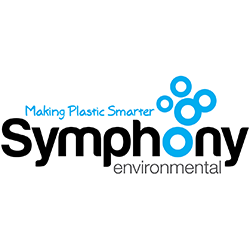Symphony Environmental Technologies Plc (LON:SYM), the specialist in technologies that make plastic “smarter, safer and sustainable” and world leaders in making ordinary plastics biodegradable with d2w technology, has announced the successful conclusion of the 5-year Oxomar study sponsored by the French Agence National de Recherche.
This study provides Symphony with further comprehensive and reliable scientific data on the performance of d2w in the oceans. The study had a multidisciplinary approach including physics, chemistry, and biology.
Highlights of the Study:
· Biodegradation proved beyond doubt in the marine environment
· Direct correlation of lab results to real-world conditions. This is critical, and hugely positive, because until now it has been alleged that laboratory results could not demonstrate performance in real life marine conditions
· Proof of transformation into more than 3,000 non-plastic biodegradable oligomers found in nature
· Non-toxic to marine creatures
The report on this ground-breaking scientific study has been submitted to the Agence Nationale de la Recherche. Symphony made a contribution to the costs of the project and the oxo-biodegradable plastic studied in the project contained the Company’s d2w oxo-biodegradable masterbatches.
The report confirms the findings of the scientists in their September 2020 interim report that “Oxo-biodegradable plastics biodegrade in seawater and do so with a significantly higher efficiency than conventional plastics,” and that “The oxidation level obtained due to the d2w prodegradant catalyst was found to be of crucial importance in the degradation process.”
The report confirms the studies completed by Queen Mary University London, and Station d’essais de Vieillissement naturel de Bandol, who applied different scientific techniques to prove biodegradation of d2w plastic in the marine environment, leaving no toxic residues.
The Study has dynamically combined and compared tests and studies performed directly in marine conditions as well as under laboratory conditions. Bacterial strains found in marine waters were used, and incubated in marine waters under temperature conditions (> 18°C) usually found in the ocean.
The Study has proved that plastic biodegradation processes observed in laboratory conditions are transferable to real life marine conditions. The scientists have specifically confirmed that accelerated weathering does not invalidate the results of experiments.
The rate of biodegradation and the ratio between biomass creation and CO2 production were also carefully studied.
Toxicity testing in Oxomar was more thorough than in any previous studies, and a wide variety of marine creatures at differing trophic levels were examined. The toxicity of the Oxo-biodegradable leachates was found to be nil, with the exception of the cobalt-based pro-oxidant. However, even in the case of that pro-oxidant, the scientists found that toxicity is not likely at the level at which it would be used in practice. Most of Symphony’s masterbatches use manganese and/or iron. Cobalt is used for special applications and at low levels.
Scientific articles arising from this Study have already been published in scientific journals (see below), and results have been presented at 13 international conferences.
The scientists noted that they had achieved significant advances in the understanding of the biodegradation and toxicity of oxo-biodegradable plastics in the marine environment. In particular they confirmed that “accelerated artificial aging (UV, temperature) which was perfectly mastered in this project, is a tool of choice which is particularly well suited to the study of the fate of OXO-bios in the marine environment.”
Michael Laurier said “No government can now be in any doubt that oxo-biodegradable plastic (as distinct from oxo-degradable plastic) does properly biodegrade in the open environment, and is not toxic. This is not therefore the type of material that the EU intended to prohibit and I trust that this and other scientific evidence will now dispel the confusion in the marketplace.”

